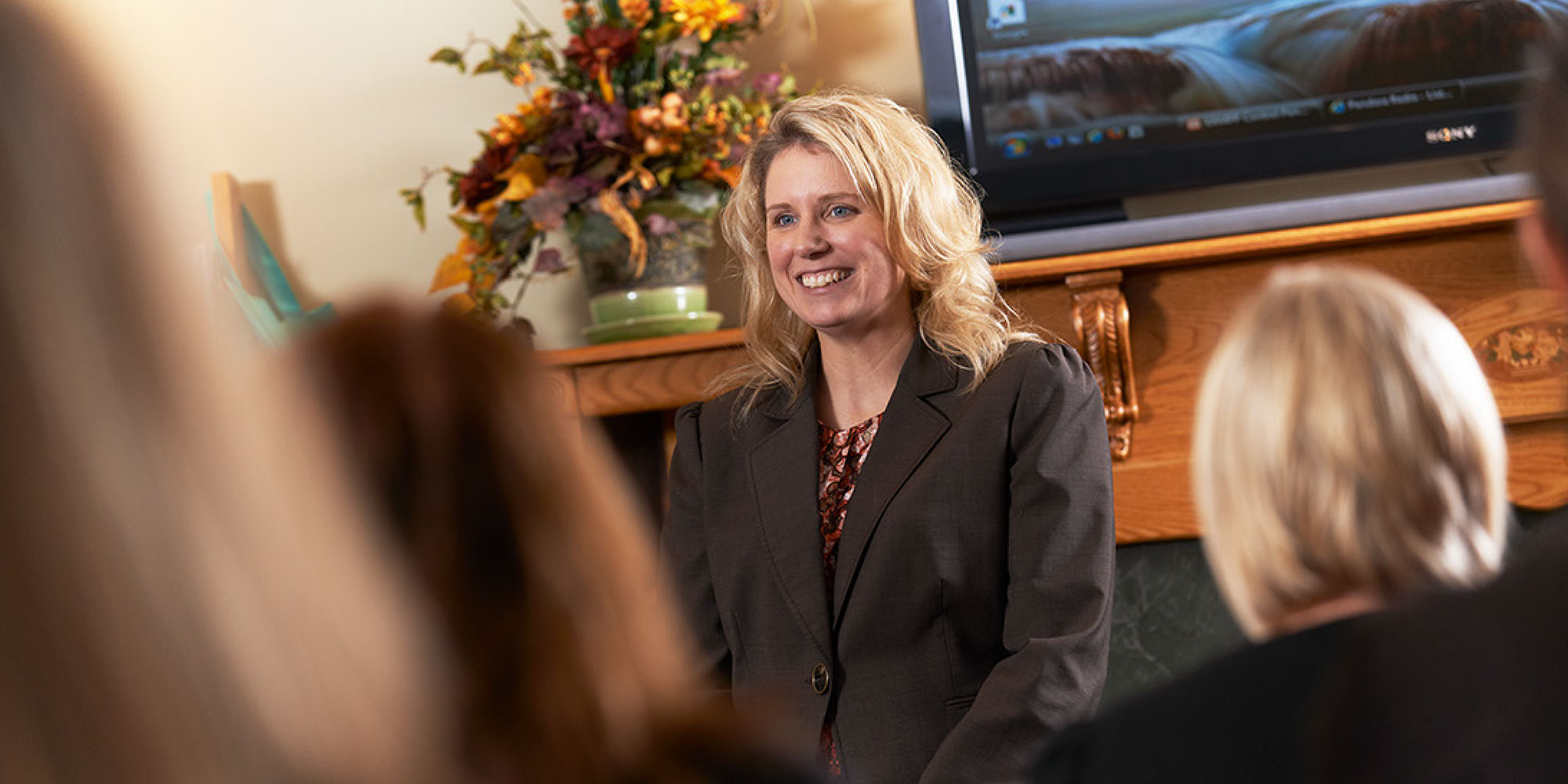SGY Speaking and Seminar Recap - Fall 2019
Attorneys and other staff members from Steinbacher, Goodall & Yurchak conduct a number of speaking engagements each month, including speaking at the firm's own seminars and outside events. Here's a summary of the firm's speaking engagements from the fourth quarter of 2019 (October - December). If you weren't able to attend but are interested in learning more about any of the topics outlined below and how it applies to your individual situation, please call the firm at 1-800-351-8334 for a free consultation. Visit the seminar page for a list of upcoming seminars.
Steinbacher, Goodall & Yurchak hosted Leadership Lycoming’s Class of 2020 at our Elder & Special Needs Resource Center. Julieanne E. Steinbacher, CELA*, spoke to the class (left) on how they can become better leaders by chunking their time, energy, and presence.
On Oct. 15, Linda Hess presented Choosing a Medicare Plan That’s Right for YOU. This presentation was provided by the STEP Office of Aging APPRISE Program. Attendees learned key factors of choosing a Medicare Plan including understanding Medicare options, making the most of prescription coverage, open and late enrollment, and Medi-gap policies. This seminar took the mystery out of choosing a Medicare plan.
SGY in the Community - Fall 2019
Each quarter, employees from Steinbacher, Goodall & Yurchak routinely particpate in community events. Here's a summary of the various activities that SGY representatives took part in during the fourth quarter of 2019 (October - December).
In October, Jenna Franks, Esq., Sarah Kehres, Executive Director, and Haley Deibert, Legal Assistant, attended the grand opening of Harmony at State College, a senior living community offering spacious independent living apartments, personal care, and memory care services.
Kyle Hetner, Client Communications Coordinator, facilitated the Lycoming Walk to End Alzheimer’s, held at the South Williamsport Park complex on October 12. Steinbacher, Goodall & Yurchak was one of 33 teams to participate. Sarah brought her pooch, Lola, to join the walkers in the fight against Alzheimer’s.
Three Staff Members Earn Certified Dementia Practitioner ® (CDP ®) Designations
Three staff members at Steinbacher, Goodall & Yurchak recently earned professional certifications as a Certified Dementia Practitioner® through the National Council of Certified Dementia Practitioners (NCCDP), the global leader in dementia education and certification for healthcare and other professionals. Jenna Franks, Esq. and long-term care planners Kristin Daugherty and Tammy Zilske completed the required training to earn the CDP® designation, which represents individuals that have received comprehensive knowledge in the area of dementia care and achievement in completing the Alzheimer's Disease and Dementia Care course/seminar. Both Kristin and Tammy add the CDP® certification to their Certified Medicaid Planner™ credentials as well.
Visit PlanningandProtecting.com to find an elder law attorney in your area!











Get the answers you need
Question or CommentDo you need assistance finding the information you need? Have a comment about our website or services? Click the button below to send us an email! We're always happy to help.